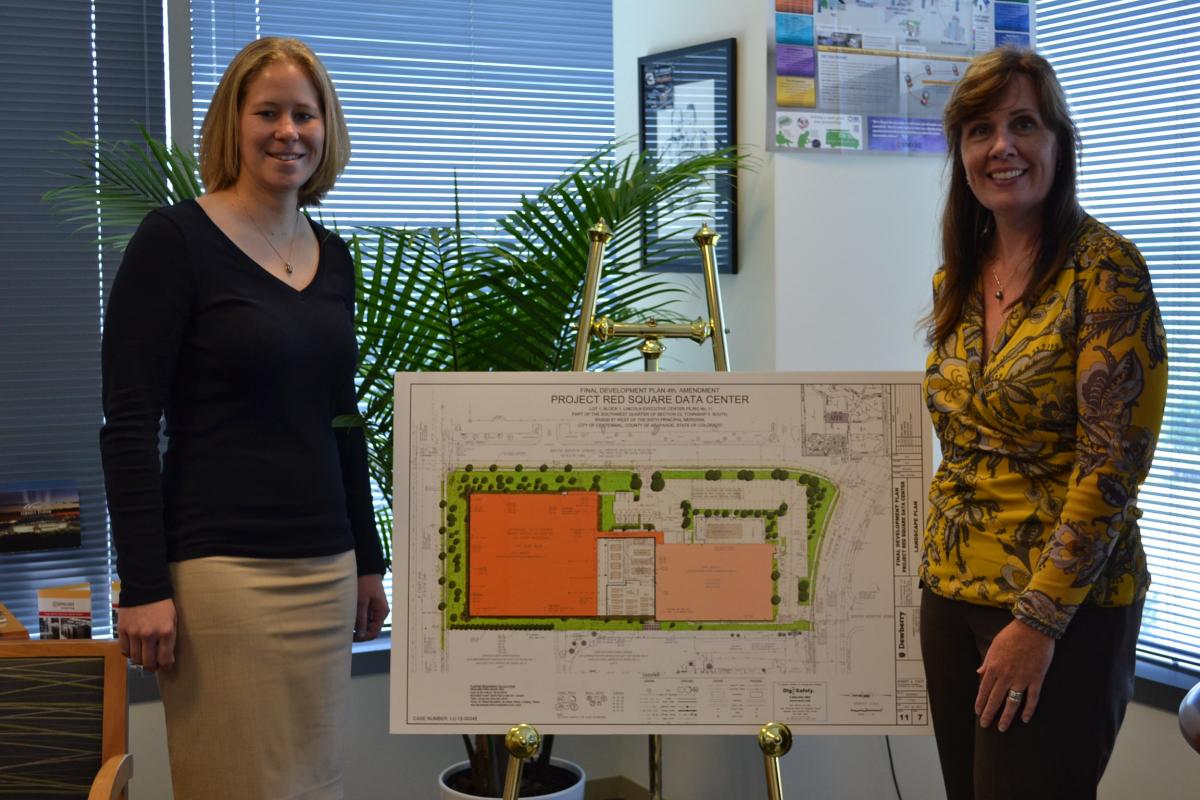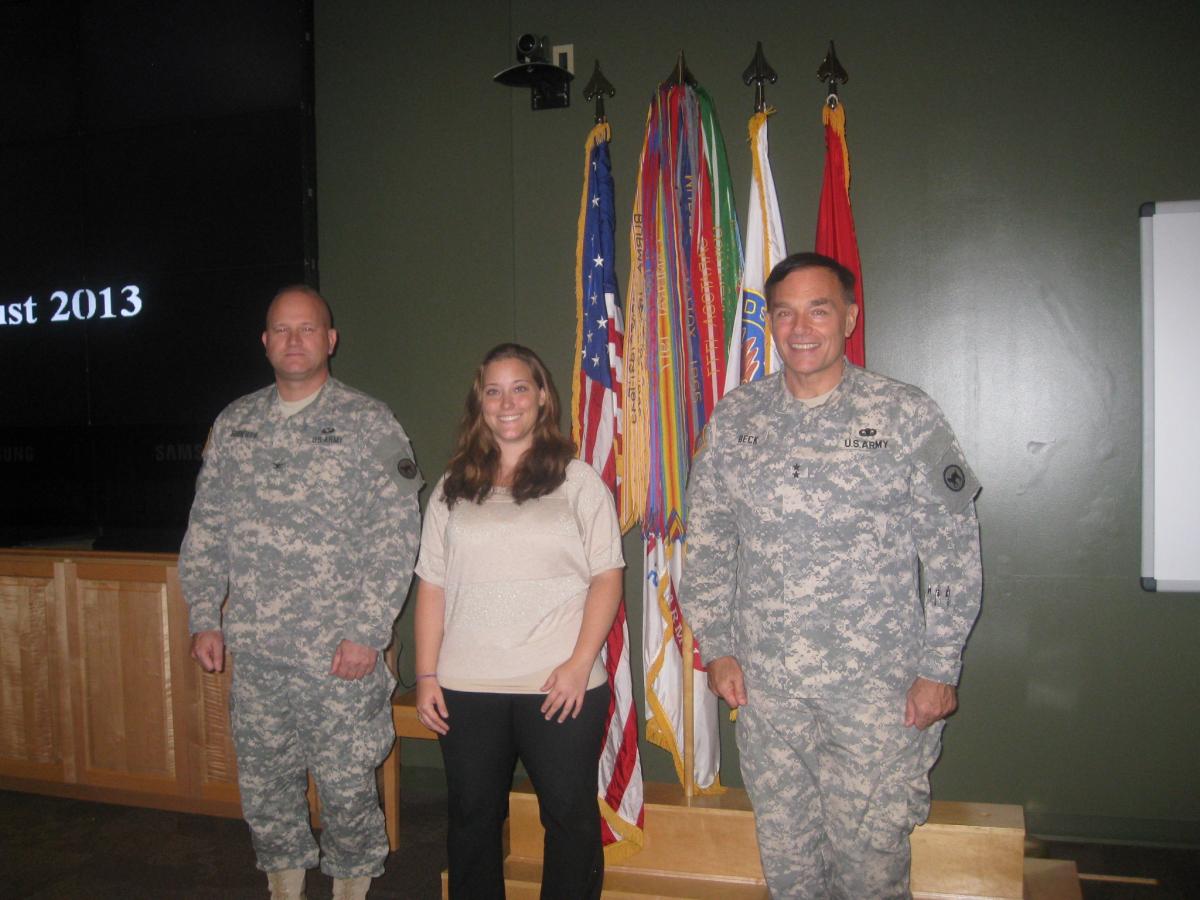EDF Climate Corps fellow | September 19, 2013
This summer 116 promising graduate students joined EDF Climate Corps to work with organizations around the country to identify energy management opportunities. Read below about two MIT Sloan students who worked at Time Warner Cable and United States Army Reserve. They spent their summer making an impact and learned much about how large organizations work and how data can really make a difference. They each hear about the program from our alumni, so if you’re interested in hearing more join our mailing list.

Name: Katie Franklin
Hometown: New Preston, CT
School: MIT Sloan School of Management
Host Organization: Time Warner Cable
Q: What is an interesting fact about you?
A: I grew up in Connecticut, but I am a huge New York sports fan. Living in Boston, I am constantly the unpopular person for my allegiance to New York.
Q: Why did you join EDF Climate Corps?
A: My goal was to do something where I could work at an organization and have an impact. Specifically, I wanted to work toward renewables and energy efficiency. I met a peer who was a fellow last year, and they recommended EDF Climate Corps.
Q: What are you working on this summer?
A: I’m working off of a carbon footprint analysis for Time Warner Cable as part of its efforts to produce a carbon abatement strategy. I’ve been looking at the biggest opportunities for carbon abatement and energy savings specifically in the Central New York region. From this we can produce a business case for New York that can serve as a foundation for other markets.
Q: What is one thing you’ve learned this summer?
A: I’ve learned a lot about how the cable industry functions, as well as how large organizations in general work. Learning how to leverage relationships and to get to the right people here will help me wherever I go.
Q: What is the best piece of advice you’ve received?
A: I was advised that, although the final deliverable of this project will likely be a number, to be successful you have to be able to do the relationship piece, the qualitative part. If you can’t establish relationships, you’re going to have a really hard time.
Q: What is the mark you want to leave on the world?
A: Energy efficiency and carbon reduction initiatives are really pivotal in industries. Anywhere I go I want to keep those things as priorities and parts of my life. I want to impart on people that they can benefit from these things and help the world.

Name: Emily Feldman
School: MIT – Sloan School of Management
Hometown: Montclair, NJ
Host Organization: United States Army Reserve
Q: What is one interesting fact about you?
A: I was once charged by a moose while living in the Grand Teton National Park!
Q: What are you working on this summer?
A: I mostly worked on a tool to analyze the output from the Army Reserve’s current energy tracking system and convert it into a useable reporting format that flags errors and aggregates data by state and/or facility. It should save the energy team a lot of time when producing reports and evaluating potential projects.
Q: What is one thing you’ve learned this summer?
A: I’ve learned that how data is collected can be just as important as what data is collected when it comes to measuring and managing energy consumption.
Q: What is the best piece of advice you’ve received from your supervisor?
A: Don’t step over dollars to get to pennies – keep the big picture in mind.
Q: What has been the best part about working at U.S. Army Reserve?
A: There are a lot of scalable opportunities to make a difference and a lot that can be done within the organization. There is a huge willingness at the U.S. Army Reserve to tackle sustainability challenges, and I was lucky to be a part of such an encouraging, forward-thinking team.
Q: What is the mark you want to leave on the world?
A: I’d like to be known for helping to design business models that allow people and businesses to prosper while protecting the environment and our natural resources.
This post is a part of our "Interviews with Tomorrow's Leaders" series. Stay tuned for more interviews with our 2013 EDF Climate Corps fellows!
About EDF Climate Corps
EDF Climate Corps (edfclimatecorps.org) taps the talents of tomorrow’s leaders to save energy, money and the environment by placing specially-trained EDF fellows in companies, cities and universities as dedicated energy problem solvers. Working with hundreds of leading organizations, EDF Climate Corps has found an average of $1 million in energy savings for each participant. For more information, visit edfclimatecorps.org. Read our blog at edfclimatecorps.org/blog. Follow us on Twitter at twitter.com/edfbiz and on Facebook at facebook.com/EDFClimateCorps.